The problem
Through agricultural run-offs and wastewater, aquatic ecosystems are increasingly threatened. High nutrient levels in the water lead to increased algal growth, which reduces oxygen levels in the water. This process is called eutrophication. Freshwater bodies are increasingly becoming eutrophied, which causes a decline in habitats for fish, birds and amphibians. Algae blooms produce bad odor and detrimental effects on freshwater ecosystems.
Ways4Water aims to develop sustainable solutions to protect and regenerate freshwater ecosystems. The first product will be floating gardens, buoyant structures provided with aquatic plants. While the plants grow, they take up excess nutrients from the water and create habitat for animals.
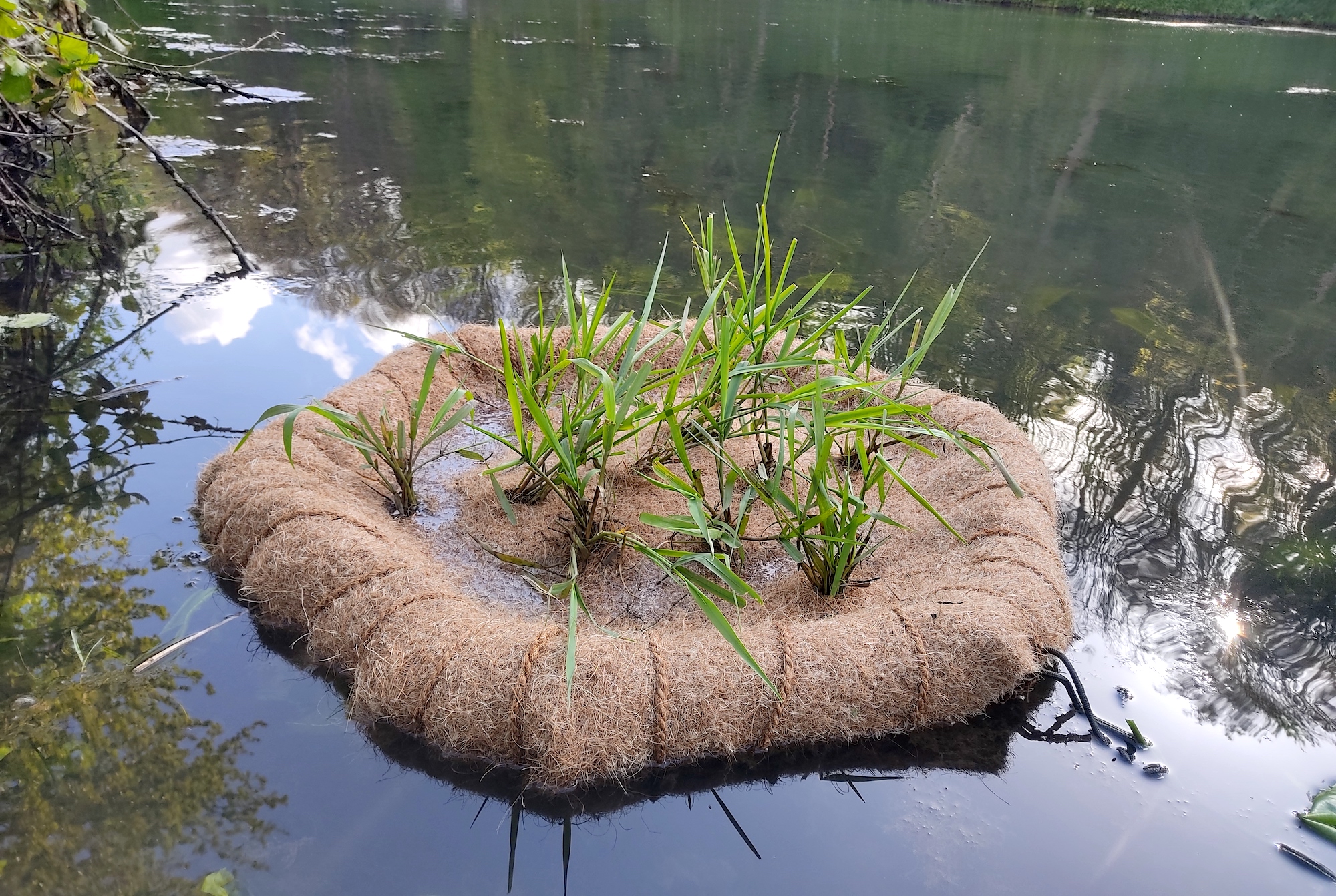
Winner of the Demo Day
Ways4Water is the winner of the first Demo Pitch Day hosted by StartGlocal. Watch the interview to learn more about the project, its aim and why it is so important to raise awareness for the health of aquatic ecosystems.
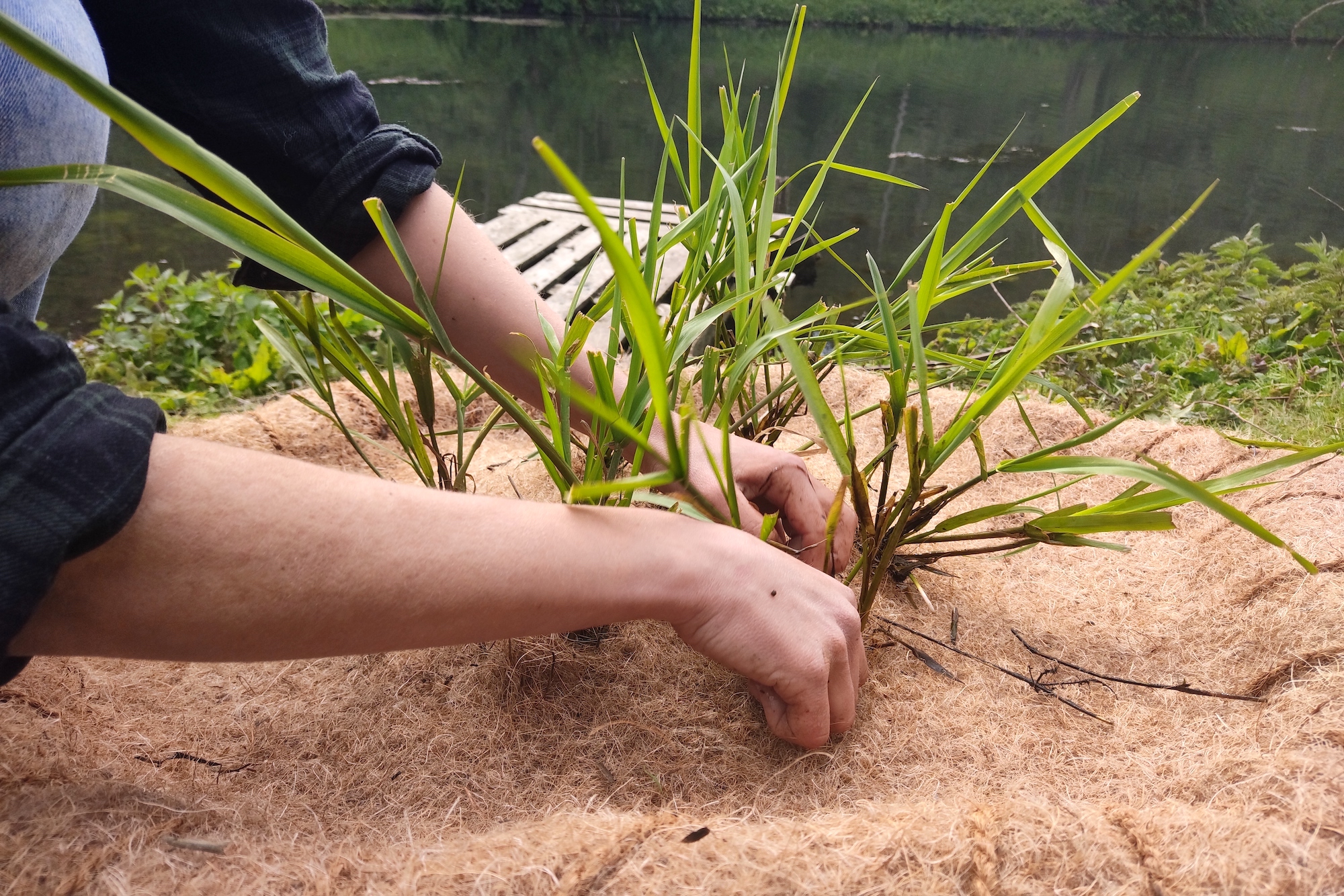
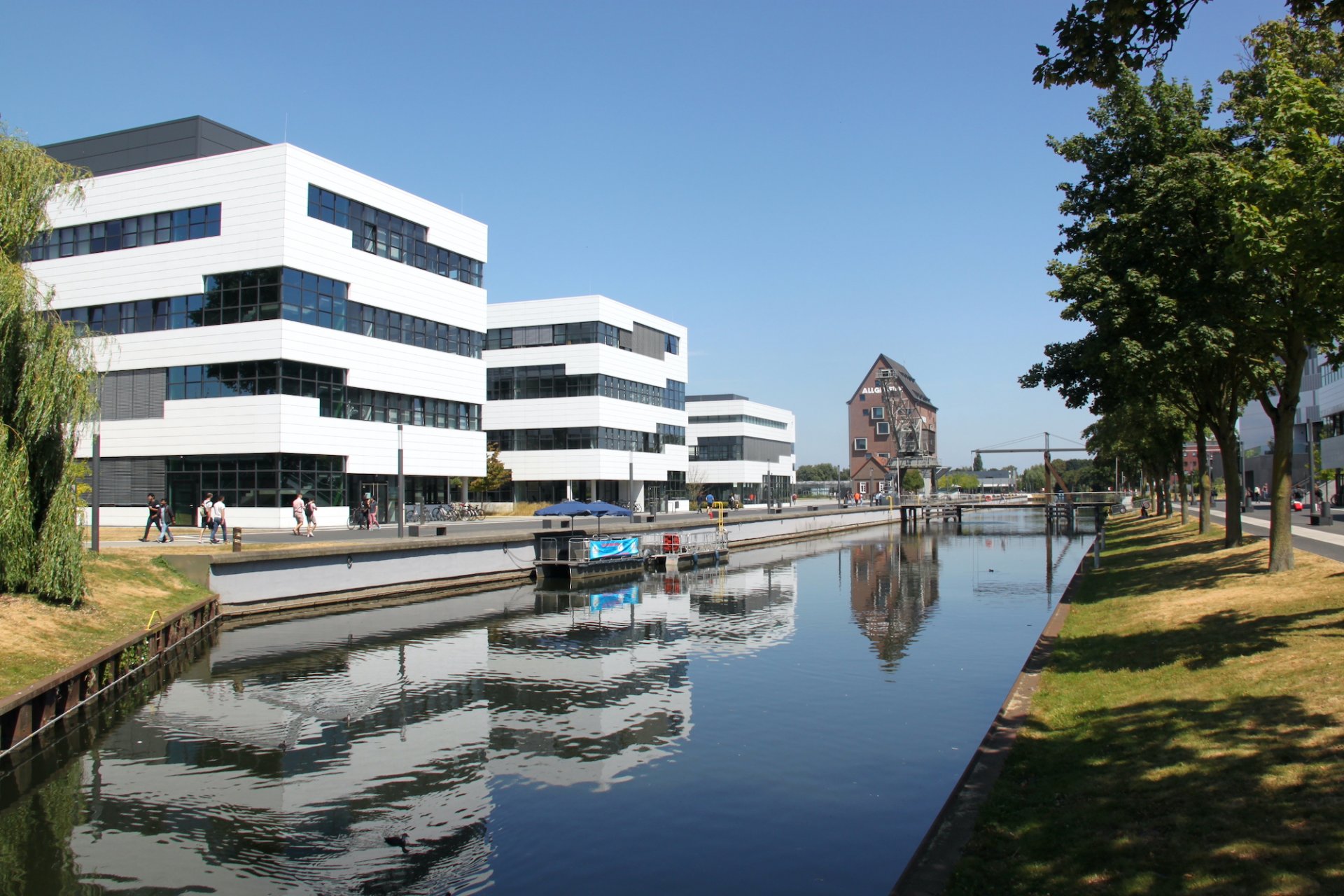
The Ways4Water team
Blanca Paschen from Hamburg
Blanca studied Biological Resources and Sustainable Agriculture in Kleve. After completing her Bachelor’s degree, she worked as a research assistant in the Soil and Plant Nutrition working group at Rhine-Waal University of Applied Sciences. During her master studies she founded a student group for the renaturation of eutrophic local waters and gained valuable knowledge in limnology.
Blanca had the idea of floating gardens together with Barbara Dröppelmann when she was working on a student project on ways to treat the wastewater of houseboats. She later founded a student group “Spoy project” in the ENSPIRE complex at the HSRW for the improvement of the Spoy’s water quality.
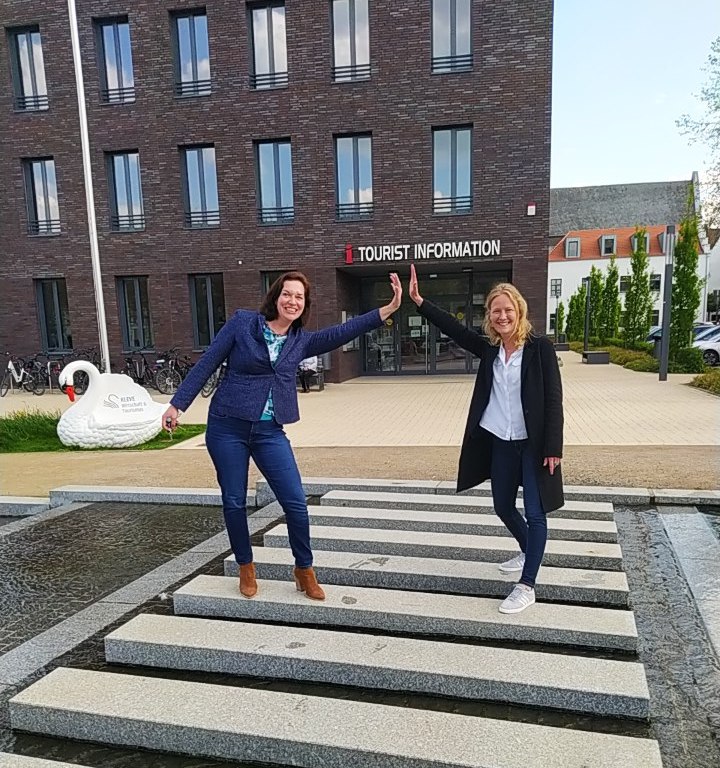
Erika Schmidt from the United States of America
Erika is currently studying Agribusiness at Rhine-Waal University of Applied Sciences in Kleve. During her studies she has put a special focus on entrepreneurship, marketing and environmental sustainability. She has a Bachelor’s degree in Fine Arts from her home country the United States.
Driven by her interest in urban and sustainable farming methods such as aquaponics and permaculture, Erika took a second degree in Agribusiness.
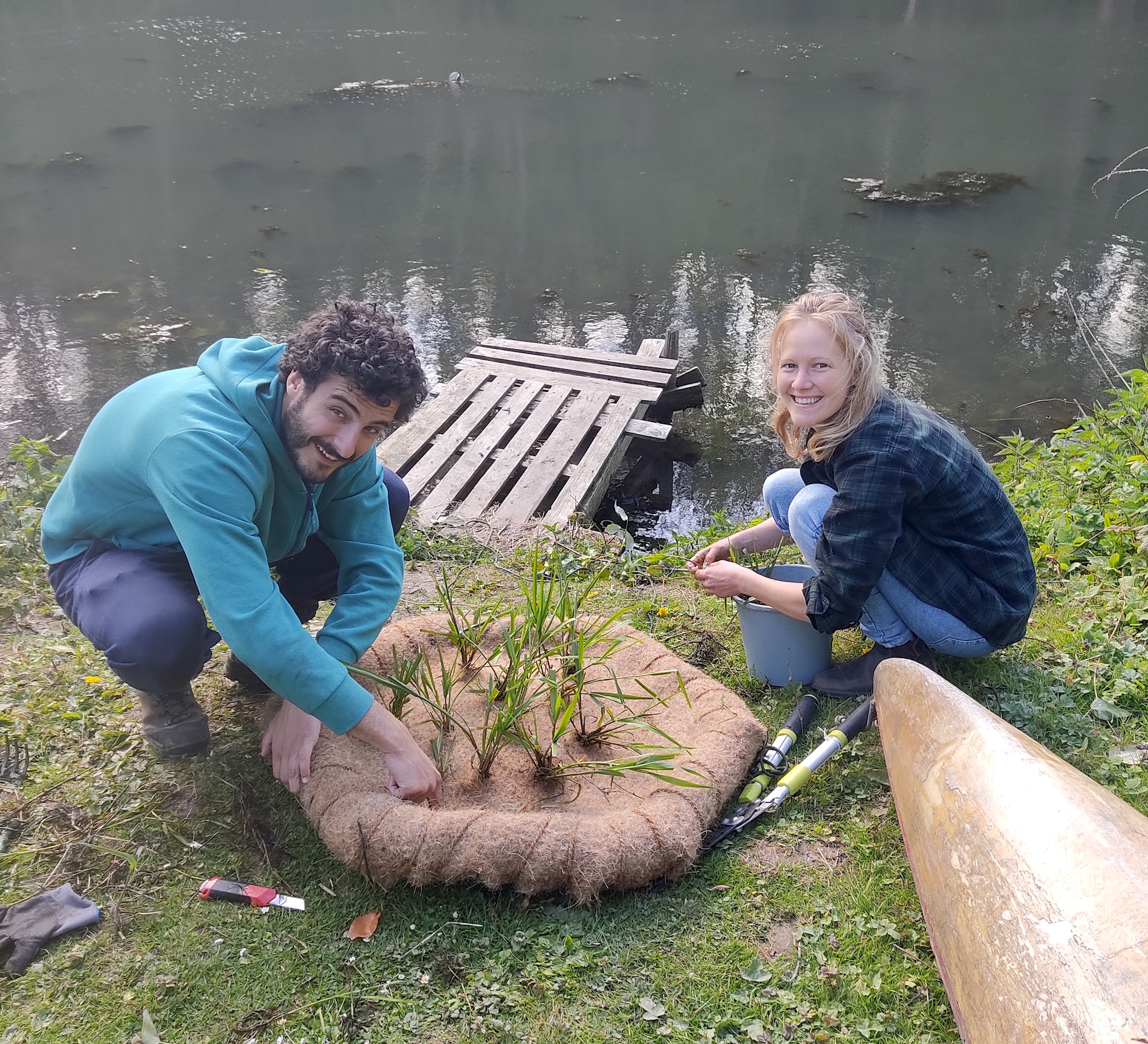
Supporters and mentors
Together with Francisco Javier Silva Deco, Blanca participated in the Start-Glocal Academy of the Rhine-Waal University of Applied Sciences and won the competition. Javier is currently studying sustainable agriculture at our university. During his studies he participated in a project to assess and find solutions for the improvement of the Spoy Channel in Kleve. Javier is currently supporting the project with his bachelor's thesis.
Barbara Dröppelmann, is a landscape architect based in Geldern. Barbara designs, among other things, biological wastewater treatment plants and natural swimming pools. She has years of technical and planning expertise in this field, as well as a client base that has shown interest in the floating gardens. She came up with the idea of floating gardens herself several years ago, and as a business angel will support and participate in the startup Ways4Water with her expertise.
In addition, Prof. Dr. William Megill, professor of Bionics with a focus on sensors and robotics and marine biologist, and Prof. Dr. Florian Wichern, professor of Soil Science and Plant Nutrition, as well as Dipl-Ing. Rolf Rheinschmidt from Rhine-Waal University of Applied Sciences are supporting the project too.
Our university offers the perfect groundwork to develop sustainable solutions for environmental problems. Thanks to its applied and international approach, students from different backgrounds can share and join efforts to develop projects with sustainable outcomes. Our team in Ways4Water is currently in the process of expanding, including new members with marketing and engineering backgrounds.

